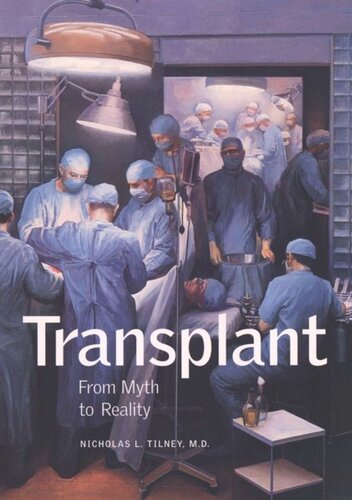

Most ebook files are in PDF format, so you can easily read them using various software such as Foxit Reader or directly on the Google Chrome browser.
Some ebook files are released by publishers in other formats such as .awz, .mobi, .epub, .fb2, etc. You may need to install specific software to read these formats on mobile/PC, such as Calibre.
Please read the tutorial at this link: https://ebookbell.com/faq
We offer FREE conversion to the popular formats you request; however, this may take some time. Therefore, right after payment, please email us, and we will try to provide the service as quickly as possible.
For some exceptional file formats or broken links (if any), please refrain from opening any disputes. Instead, email us first, and we will try to assist within a maximum of 6 hours.
EbookBell Team

0.0
0 reviewsOne of the most spectacular medical advances of the twentieth century, organ transplantation has become a generally effective and routine treatment for patients with organ failure. In this riveting book, a well-known expert in the fields of clinical transplantation and transplantation research traces the evolution of organ transplantation from its initial stirrings in the imaginations of the ancients to its current status as accepted treatment for nearly 40,000 patients each year. Drawing often on his own firsthand experience, Dr. Nicholas L. Tilney tells the story of the advances in organ transplantation, discusses how societal forces have driven its development, and reveals how its current success is marred by commercialism and exploitation of the less fortunate.
Dr. Tilney describes early transplantation attempts, the first successful kidney transplant in 1954 between identical twins, the scientific advances for suppressing the immune system, the introduction of the concept of host tolerance, the new research on donor matching, and the issue of donor brain death. He explores innovations in heart, lung, liver, and other abdominal transplants and reflects on the attempts to make transplants between species. Finally he explains how organ transplantation has become a vast business, creating ethical and logistical conflicts about organ donations.